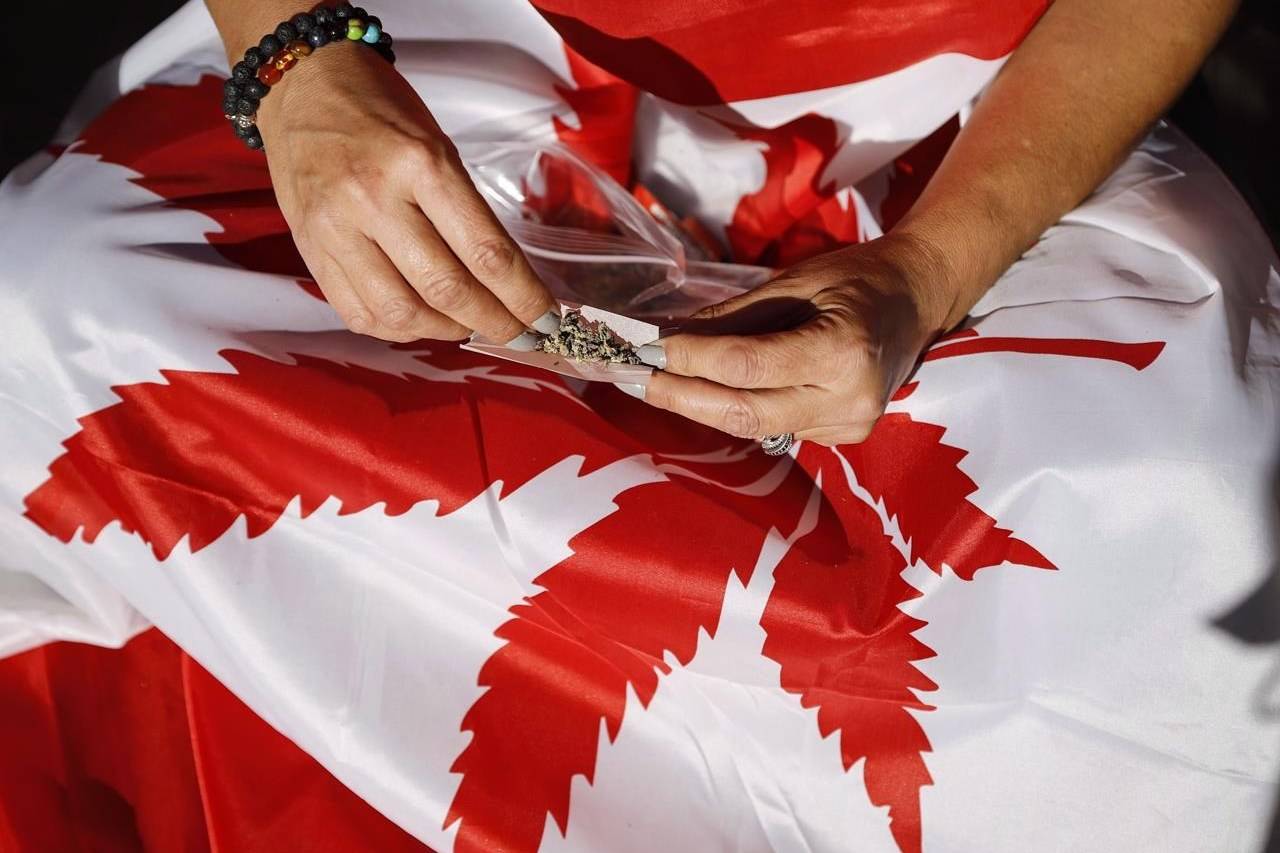Quebec’s ban on the sale of cannabis-themed products is too broad and inhibits legitimate freedom of expression, the lawyer for a head shop challenging the law argued Thursday.
Michael Chevalier told a Quebec Superior Court judge that the provincial government hasn’t proven banning the sale of all products that reference cannabis is necessary to achieve its goal of preventing the public — particularly young people — from being harmed by the drug.
And he said there need to be exceptions to the sweeping law, which bans the sale of everything from books to apparel and other products with images of cannabis leaves or slogans related to the drug.
Christopher Mennillo, the co-owner of Prohibition, a chain of smoking accessory stores based in the Montreal area, said it doesn’t make sense that he had to stop selling cannabis merchandise after legalization in 2018.
“After 35 years of selling a product, we weren’t expecting for it to become illegal with legalization,” Mennillo, whose company filed the lawsuit, said in an interview.
Mennillo said he’s not opposed to restrictions on advertising by cannabis manufacturers and producers, but he thinks Quebec’s law goes too far. “You can’t sell a T-shirt that has 420 on it, for example,” he said, referring to a common slang term for cannabis, adding that he’s also had to stop selling candles, books and magazines.
“A T-shirt is one thing, but what do you say about books? It’s illegal to sell an educational book on cannabis, because it’s a total ban,” he said.
Quebec’s law prohibits the sale of products — except for cannabis itself — with a “design, image or slogan” directly associated with cannabis. A government Crown corporation has exclusive control over legal cannabis sales in the province.
Charles Gravel, the lawyer for the provincial government, told Justice Marc St-Pierre the ban is intended to reduce the harmful effects of cannabis use on the public, particularly young people, and he compared it to restrictions on tobacco advertising.
He also noted that there is no ban on wearing shirts that advocate cannabis use. “At the moment, someone who walks in the street with a shirt with a cannabis leaf that says ‘smoke more,’ ‘smoke every day,’ ‘wake and bake,’ whatever, this person is in violation of nothing,” he said.
Gravel said the judge shouldn’t focus on the products themselves but who the ban is aimed at — retailers and cannabis producers.
He argued that the visibility of products with cannabis-related images encourages consumption, and that even if shirts are only sold to adults, they will be seen by young people. Gravel argued that ensuring young people aren’t encouraged to try cannabis is more important than the private interest of retailers.
The trial ended Thursday and the judge said he will deliberate before rendering a decision.
Jacob Serebrin, The Canadian Press

